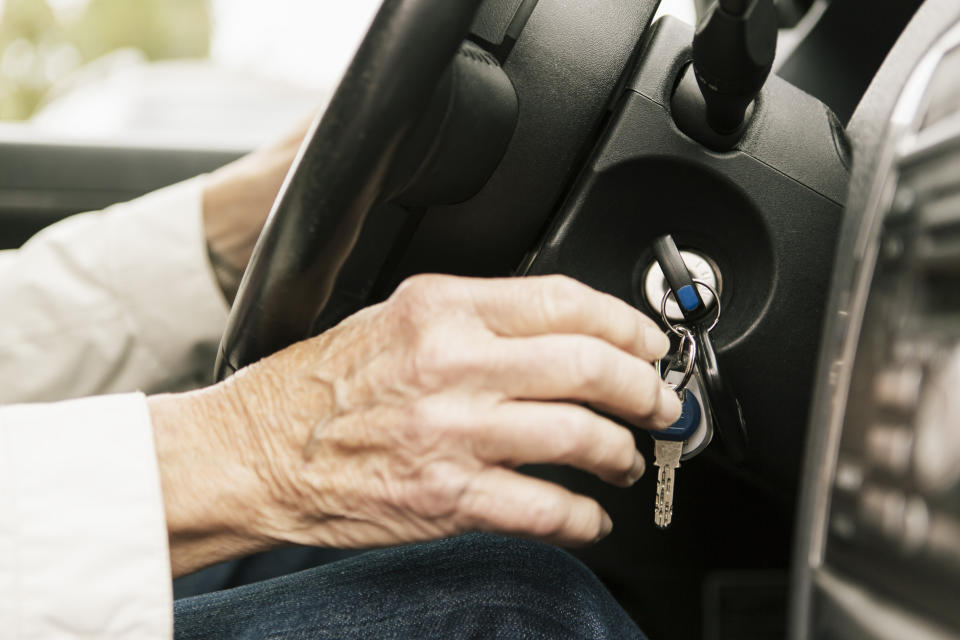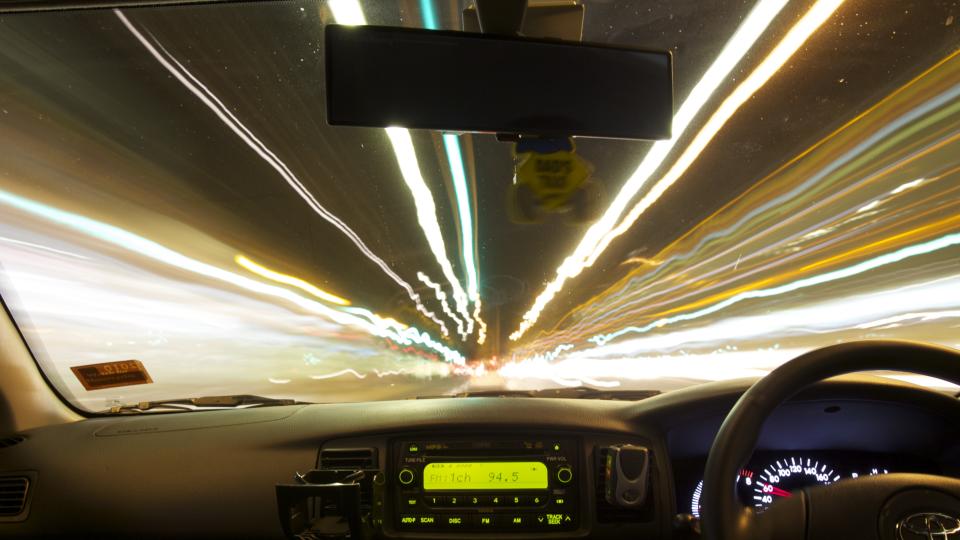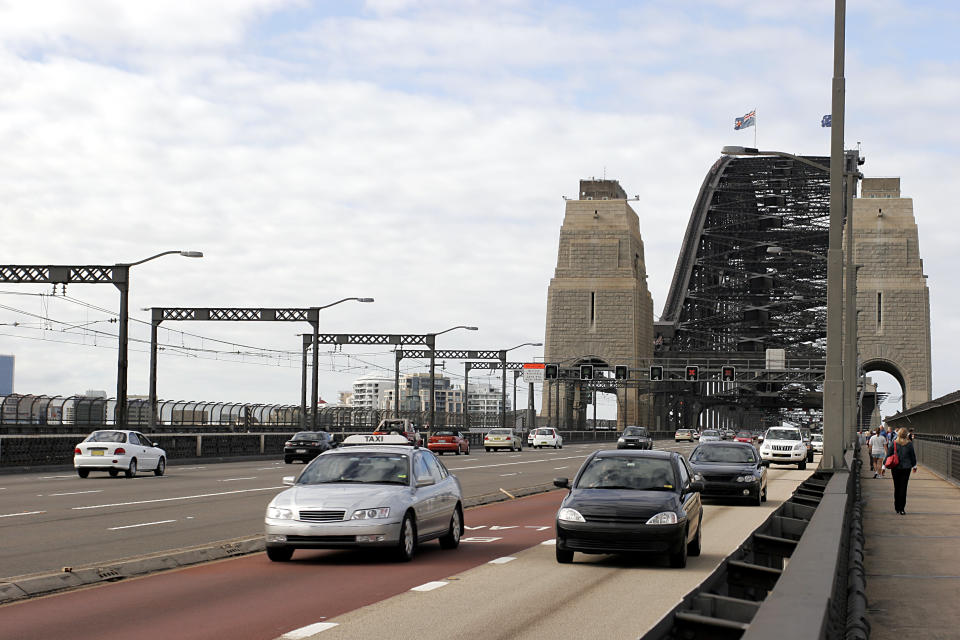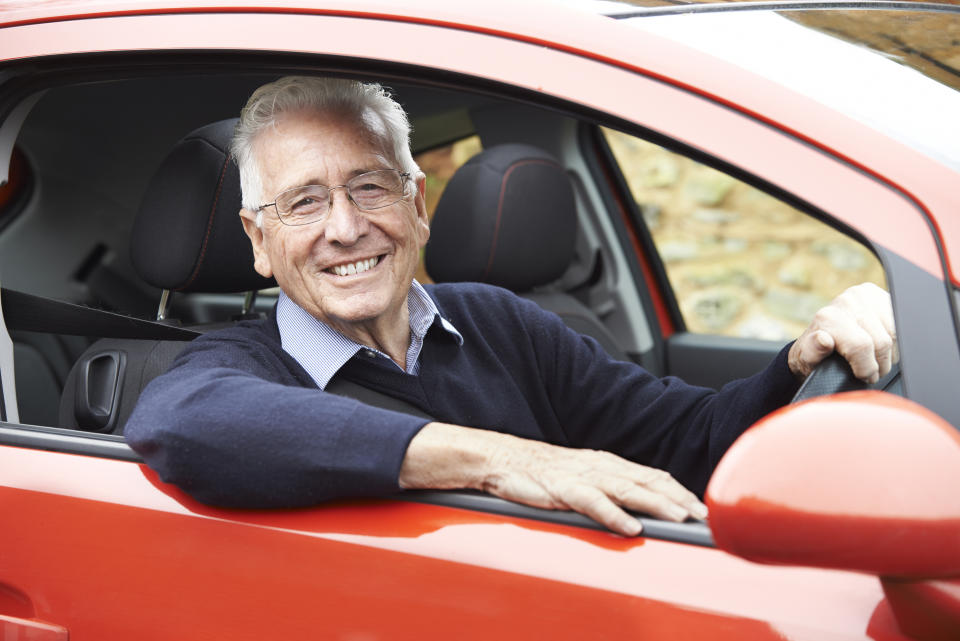Should elderly people be made to resit their driving test?
With much being made of Australia’s road toll, a key discussion points is whether drivers aged over 75 should be made to re-sit their driving tests.
Rules differ in each state. NSW drivers aged 75 or over have to undergo a test annually to see if they’re fit to drive. In Queensland, you need to carry a valid medical certificate.
Other states have a similar approach except for Victoria where age is not a determinant to someone’s right to hold a driver’s licence.
‘They’re a safe group’
Professor Jeremy Davey of the Sunshine Coast Road Safety Research Collaboration told Yahoo News Australia older drivers aren’t risk takers.
“We need to be careful of knee-jerk reactions whenever we read about an ‘over 65 driver’ having an accident in the news,” Professor Davey said.
“If you were to do something on risk and outcome you would find drivers over 65 are safer.”
Dr Mark King of Queensland University of Technology’s Centre for Accident Research and Road Safety said age “often gets blamed” as the cause of accidents.
“People tend to focus on the age of the driver but if you look at the stars it doesn’t really stack up,” he said.

Rules on elderly drivers in each state
In NSW, drivers aged 75 or over have to undergo medical testing each year. At 85, they also have to take a practical driving test every second year.
Victoria’s elderly drivers don’t have mandatory testing. Fitness and driving behaviour’s determine if someone’s able to drive - not age.
In Queensland, drivers aged 75 or older have to visit their GP for a medical certificate each year.
South Australia sends drivers 75 or older a self-assessment each year for their driving capabilities. They can then be sent to a doctor to complete the assessment.
In Western Australia, once drivers reach 80 they have to undergo an annual visit to the doctor. At 85, drivers can be asked to undergo practical testing. However, this isn’t mandatory.
The Northern Territory doesn’t have any specific rules but the government in the top end can ask anyone, regardless of age, to prove their competency on the road.
Drivers in the ACT have to be assessed by a doctor annually from age 75.
Once a driver turns 65 in Tasmania they can only renew their licence for five-year periods. All drivers are responsible for to report any medical conditions which could affect their driving.

According to the National Road Safety’s statistics, 129 people aged 75 and over died on Australia’s roads last year.
That’s compared to 226 between 17-25 and 257 aged 26-39. The age group 40-64 had the most deaths with 358.
Professor Davey said as people age their skills deteriorate, but added older drivers are encouraged to reflect about their driving.
Should older drivers be tested?
Dr King believes Queensland’s system, where a driver aged over 75 needs a valid medical certificate, is best practice.
He added medical testing at 75 is “reasonably adequate”.
“Risks will continue to emerge as people age and their cognitive and physical abilities deteriorate,” he said.
“This system relies on the medical practitioner. It makes use of the relationship between the doctor and patient.
“While I’m not entirely sure about each state’s assessment I think it was found testing and different methods made no difference to the number of crashes in each state.”

Dr King added if a doctor has further concerns, they can direct a patient to the RACQ or if it’s a physical ailment to another specialist.
Professor Davey said older people “need to engage the system more”.
“Sometimes not everything is disclosed to the GP either,” he said.
“Medical testing is appropriate and there hasn’t been a pushback overall.”
The impact of loss of licence on the elderly
National Seniors chief advocate Ian Henschke said older drivers being allowed to stay on the road means they can continue to “live independently, be less dependent, contribute to society, and avoid loneliness by engaging with family, friends, their pastimes and the broader community”.
“At a time when the national focus is on addressing the loneliness that often accompanies aged loneliness then enabling and encouraging older Australians to be mobile is a priority,” he said.
“There should be a lot more research done in this area.”
He added governments should address any tendencies to demonise groups within the driving community including older Australians.

“Such an attitude must be countered,” Mr Henschke said.
“Older people, like other groups, have a right to use the roads and evidence suggests they are responsible and careful drivers.”
Professor Davey said the impact of loss of licence for an older person is the same for someone in their teens or early 20s.
“The loss of licence is met with a lot of social outcomes,” he said.
“It restricts options and people in rural areas might not have the same access to public transport.
“Older people also have less mobility to access health care at a time where they need to engage the system.”
The safe system approach
Dr King suggested governments engage a “safe system approach” to road safety instead of looking at drivers.
“We should look at changes to infrastructure, standards of signage and intersections,” he said.
“If you look at car parks we could consider changing design features for many of them. Many have 10km/h speed limits while some are even unregulated.
“These are areas where there are pedestrians and drivers moving through all at the same time.”
Do you have a story tip? Email: newsroomau@yahoonews.com.
You can also follow us on Facebook, download the Yahoo News app from iTunes or Google Play and stay up to date with the latest news with Yahoo’s daily newsletter. Sign up here.

